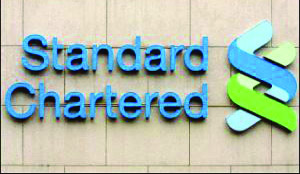STANDARD Chartered Bank has continued to advance its role in empowering Small Medium Enterprises (SMEs) in the country with its financial envelop reaching K300 million to date.
Standard Chartered Bank chief executive officer Andrew Okai said the financial institution was a keen driver of growth in the SMEs sector, hence the disbursement of the more than K300million to render support for their development in Zambia.
The Bank had supported more than 8,000 SMEs across different sectors ranging from mining suppliers to those engaging in food processing, printing and construction.
Mr Okai said the Bank’s motivation was anchored in the belief that
once SMEs succeeded even the country’s economy thrived.
“When SMEs succeed, economies thrive. For it is SMEs that create jobs, stimulate entrepreneurship and innovation, that is why we at Stanchart are keen to support SMEs to grow-we want to continue to be part of their success,” Mr Okai said.
He said during the SME capacity building workshop in Lusaka yesterday that one of the most effective ways to help SMEs grow was through capacity building.
“We see this workshop as one way to empower SMEs with the financial tools to help them succeed from planning their finances better, to more effective management tools for their businesses,” he said.
Standard Chartered would use the experience of operating in Africa,
Asia and the Middle East to empower Zambian SMEs to enhance their businesses and support them in their aspirations to be strong Zambian businesses.
“As a Bank, we currently support the micro finance sector, who then lend to the informal sector and indeed individuals. Our strategic vision is to bank the people and companies driving investment, trade and the creation of wealth across Asia, Africa and Middle East,” he said.
Bank of Zambia (BoZ) deputy governor Bwalya Ng’andu said by building a strong and robust SME sector, Zambia could find medium to long term solutions required to build an equally robust and self sustaining economy.
Dr Ng’andu said it would be inappropriate for commercial banks to fold their arms and declare the SME sector a no-go area for them or even to take the view that they could only lend to the sector when the price of credit was unduly exorbitant.
“The challenge they face is that of trying to understand the SME sector in its entirety, so that the product offering and the price reflects a sound knowledge by the bank of the sector,” he said.
Dr Ng’andu said it was important for commercial banks to build skills and expertise among their staff so that they were able to deal with the SMEs comfortably and confidently.
“For small and medium business owners, I want to tell you this; do not expect credit from banks if you are unable to demonstrate that you have the appropriate business skills or worse unwilling to invest the time and money in developing these skills,” he said.
Dr Ng’andu urged the banks not to deny credit to deserving SME operators simply because financial institutions had a poor understanding of the SME sector.







